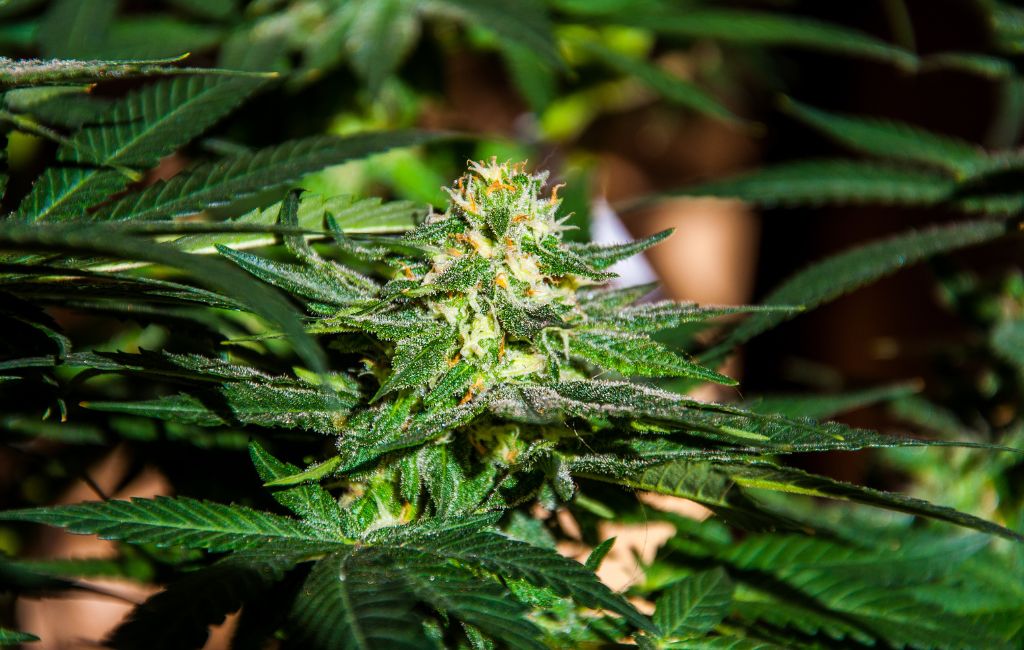THCa Flower Anti-Nausea Properties for Natural Relief
In recent years, the exploration of cannabis and its derivatives has gained significant attention for their potential therapeutic benefits. Among these, THCa (tetrahydrocannabinolic acid) has emerged as a promising compound, particularly for its anti-nausea properties. This article delves into the science behind THCa flower anti-nausea properties.
Understanding THCa: The Non-Psychoactive Cannabinoid
THCa is a naturally occurring cannabinoid found in raw and live cannabis plants. Unlike THC (tetrahydrocannabinol), THCa is non-psychoactive, meaning it does not produce the “high” associated with cannabis consumption. This characteristic makes it an attractive option for individuals seeking therapeutic benefits without the psychoactive effects.
THCa is the precursor to THC. When cannabis is heated through smoking, vaping, or cooking, THCa undergoes decarboxylation, converting into THC. However, when consumed in its raw form, THCa retains its non-psychoactive properties, offering potential health benefits without altering mental state.
The Science Behind THCa’s Anti-Nausea Properties
Research into the anti-nausea properties of THCa is still in its early stages, but preliminary studies and anecdotal evidence suggest promising results. THCa interacts with the body’s endocannabinoid system (ECS), which plays a crucial role in regulating various physiological processes, including nausea and vomiting.
The ECS consists of cannabinoid receptors (CB1 and CB2), endogenous cannabinoids, and enzymes. THCa is believed to interact with these receptors, particularly CB1, which is found in the central nervous system. This interaction may help modulate the signals that trigger nausea and vomiting, providing relief for individuals experiencing these symptoms.
Case Studies and Anecdotal Evidence
While comprehensive clinical trials are limited, several case studies and anecdotal reports highlight the potential of THCa in managing nausea. Patients undergoing chemotherapy, for instance, have reported reduced nausea and improved appetite when using THCa-rich cannabis products.
- A 2013 study published in the British Journal of Pharmacology explored the anti-emetic effects of cannabinoids, including THCa, in animal models. The study found that THCa exhibited significant anti-nausea properties, suggesting its potential as a therapeutic agent.
- In a 2019 survey conducted by Project CBD, patients using THCa for nausea reported positive outcomes, with many experiencing relief without the psychoactive effects of THC.
THCa Flower: A Natural Source of Relief
THCa flower refers to raw cannabis buds that are rich in THCa. These flowers can be consumed in various ways to harness their potential anti-nausea benefits. Some popular methods include juicing, blending into smoothies, or using them in raw salads.
Consuming THCa flower in its raw form preserves the cannabinoid’s non-psychoactive properties, making it an appealing option for those seeking natural relief from nausea. Additionally, raw consumption allows individuals to benefit from other cannabinoids and terpenes present in the plant, which may contribute to an entourage effect, enhancing the overall therapeutic experience.
Potential Benefits and Considerations
THCa offers several potential benefits for individuals experiencing nausea:
- Non-Psychoactive Relief: THCa provides therapeutic effects without the psychoactive high, making it suitable for individuals who wish to avoid altered mental states.
- Natural and Holistic: As a natural compound, THCa aligns with holistic approaches to health and wellness, appealing to those seeking alternative remedies.
- Versatile Consumption: THCa flower can be consumed in various forms, allowing individuals to choose a method that suits their preferences and lifestyle.
While THCa shows promise, it is important for individuals to consult with healthcare professionals before incorporating it into their regimen, especially if they are undergoing medical treatments or taking medications.
Conclusion
THCa flower presents a promising avenue for natural nausea relief, offering therapeutic benefits without the psychoactive effects of THC. As research continues to unfold, THCa’s potential as an anti-nausea agent becomes increasingly evident. By understanding its properties and exploring its applications, individuals can make informed decisions about incorporating THCa into their wellness routines. As always, consulting with healthcare professionals is advised to ensure safe and effective use.


